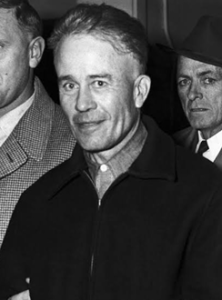Battling PTSD: the war continues
February 11, 2015
Silouan Green led a workshop for the UW-La Crosse Diversity Dialogues series. Diversity Dialogues takes place annually and is sponsored through Campus Climate and Diversity. This particular session was titled “Understanding and Addressing the Needs of Student Veterans” and was intended for faculty and staff.
Green is a speaker who focuses on Post Traumatic Stress Disorder and overcoming adversity.
Green served in the United States Marine Corps until he was in a tragic jet crash. After that he struggled to persevere through severe PTSD and depression.
His biography states that this is when he made a choice to “live free.” He bought a motorcycle and a guitar and spent two years travelling the country and creating a new life instead of letting PTSD overcome him.
“Everything in my life comes from my trip… my wife, my kids, my job,” Green said.
Throughout his talk, he discussed the fact that PTSD is not only found in veterans. He shared stories of people who have experienced sexual assault, people who have watched their friends die and more.
Statistics regarding PTSD show its prevelance: 10 out of every 100 women in the United States will have PTSD at some time in their lives. Four out of every 100 men in the United States will have PTSD at some time in their lives. 5.2 million adults in the United States have PTSD during any given year.
“In the middle of incredible trauma, you tend to identify with that… I am PTSD this is who I am. I’m a broken marine this is who I am. I am cancer this is who I am,” Green stated in his workshop.
He put emphasis on the fact that PTSD is a development. The traumatic event can be directly experienced, witnessed, learned or from repeated exposure.
“Everyone has something in his or her life that could contribute to PTSD; it will allow you to have empathy with them,” said Green.
After he shared some of the symptoms of PTSD such as intrusive symptoms like memories and dreams, avoidance of stimuli, negative alterations of mood and difficulty regulating emotions, he encouraged faculty and staff to reach out to students if they recognized any of the symptoms.
Green stated, “Never forget the power of your words. Never underestimate what a couple of words to a student can mean in their life.”
When professors show that they care about the students it can strengthen the meaning of college, and college shouldn’t just be about getting a degree. Students should also learn about life while in school.
And doctors don’t attempt to heal someone with PTSD; the goal is to help them be able to live with it.
There are always new and changing efforts to treat PTSD and depression. Over the past decade there have been tests conducted using psychedelics such as psilocybin and LSD.





